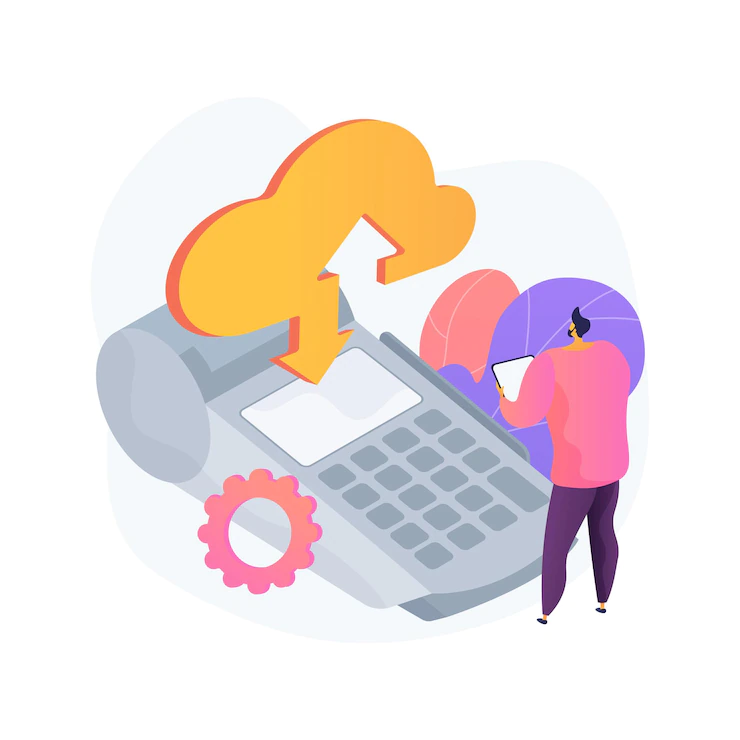How does ERP software make inventory valuation easy for enterprises

According to IBM research, 56% of retail business leaders reported that their inventory information was not accurate. Errors in inventory record keeping have become a major cause of concern for retailers, making inventory visibility a pipe dream.
Having an accurate inventory valuation has become the need of the hour. Accurate inventory valuation doesn’t just boost sales, it also helps prevent dead stocks or out-of-stock scenarios. Streamlining your inventory in retail through inventory valuation gives you an overview of the financial position of your company.
This blog talks about how deploying an enterprise resource planning (ERP) software can make inventory valuation far easier for your enterprise.
What Inventory Valuation Involves
Inventory valuation is the process of determining the value of goods or materials for the financial year. It helps businesses determine their total assets, liabilities and equity on their balance sheets.
The process includes establishing accounting policies, calculating the cost of goods sold, identifying fixed assets, calculating net realizable value, recording inventory transactions, and preparing year-end adjustments.
Inventory valuation helps determine whether an item is under-valued, over-valued or accurately valued.

Factors Involved in Inventory Valuation
Inventory Valuation accounts for the sum of purchased stock, sold stock and closing stock. However, the calculation involves a host of other factors. These include:
- Actual Cost of Raw Materials
- Labour Costs
- Transport and Logistics
- Material handling/Shipping
- Import Duties and Taxes
- Warehouse Utilities
- Sunken costs/Depreciation costs
Costing Methods
Calculating inventory goes through a host of different valuation methods. Some of the most popular ones are:
-
First In First Out
First In First Out (FIFO) is the simplest method of inventory valuation. It assumes that the earliest units acquired are the first to be sold. In this method, the cost of goods sold (COGS) is equal to the cost of the oldest units in inventory. It is the simplest and most used method.
-
Last In First Out
The Last In First Out (LIFO) method assumes that the items purchased most recently are sold first. The COGS is equal to the cost of the latest units in inventory.
LIFO accounting reduces the amount of taxes paid by a company. When a company purchases goods, they are valued at their current cost, which could be higher than what they were purchased for. For instance, if a company purchases $1000 worth of goods and sells them for $1200, they will be taxed on $1200 instead of $1000. This method increases the cost of goods sold and reduces gross profits in accounting.
LIFO, however, is not suitable for time-sensitive or perishable items since it involves complex calculation procedures. Retailers also need to be aware that this process is not acknowledged by the International Financial Reporting Standards (IFRS).

-
Weighted Average Cost
The weighted average cost method (WAC) falls between LIFO and FIFO. It is the average of all your inventory costs and works best when your inventory items are identical. WAC eliminates the need to record individual purchases for assessing profits and tax liability.
-
Specific Identification Method
Specific identification method is the exact opposite of the weighted average cost method. It tracks the costs of items separately. This approach works best when you have unique items in your inventory. Businesses using RFID tags with serial numbers benefit from this method.

Significance of ERP in Inventory Valuation
Inventory valuation is a major function of an enterprise resource planning (ERP) software. It helps you keep track of your expenses, analyse and evaluate the performance of assets and manage inventory.
ERP is redefining the way businesses assess their stock. The valuation of your inventory becomes more streamlined and efficient when you use an ERP software. Some of the top benefits of using ERP in inventory valuation are:
- Accuracy -ERP software helps you avoid human errors by automatically updating inventory levels based on actual usage or sales volume.
- Consistency- It ensures that all departments within your company use the same method to track inventory costs. This makes it easier to compare data across departments.
- Efficiency- ERP automates the manual work associated with calculating inventory valuation.
- Choice- Retailers have the option to choose their valuation method based on the item category.
- Authenticity- ERP uses Barcode or RFID tags to record all the details of the incoming raw materials including date, time, quantity and value.
- Reduced Costs- It makes sure that all your goods are used efficiently and there is no wastage at any point in time.
- Improved Customer Satisfaction- Accurate inventory valuation puts a halt to stockouts and enhances customer experience.
- Better Decision Making- Having complete visibility into your inventory levels helps in making improved business decisions.

Decoding Inventory Valuation with Ginesys ERP
To ensure that your inventory valuation is accurate and up to date, you need a functional and fully integrated retail management solution. Ginesys ERP provides the best-in-class features and functionality to simplify inventory valuation. We combine inventory categorization with a flexible item hierarchy to help you automate strategic decisions, increase visibility, reduce audits and improve efficiency.
Ginesys Cloud ERP leverages the power of cloud computing to deliver a seamless and simplified process. It also integrates with Ginesys Cloud POS and other accounting software.
Make your inventory valuation process seamless with Ginesys. Get in touch with us!